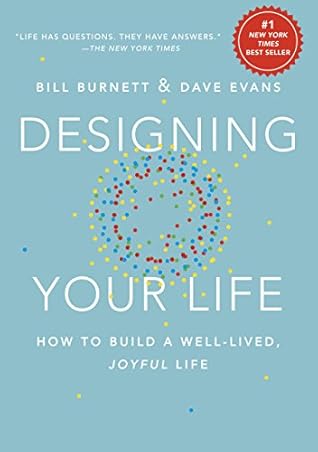More on this book
Community
Kindle Notes & Highlights
by
Bill Burnett
Read between
December 11 - December 21, 2022
A well-designed life is a life that is generative—it is constantly creative, productive, changing, evolving, and there is always the possibility of surprise.
The five mind-sets you are going to learn in order to design your life are curiosity, bias to action, reframing, awareness, and radical collaboration.
Life design is a journey; let go of the end goal and focus on the process and see what happens next.
In design thinking, we put as much emphasis on problem finding as we do on problem solving.
Deciding which problems to work on may be one of the most important decisions you make, because people can lose years (or a lifetime) working on the wrong problem.
These are all gravity problems—meaning they are not real problems. Why? Because in life design, if it’s not actionable, it’s not a problem. Let’s repeat that. If it’s not actionable, it’s not a problem. It’s a situation, a circumstance, a fact of life. It may be a drag (so to speak), but, like gravity, it’s not a problem that can be solved.
The only response to a gravity problem is acceptance. And this is where all good designers begin. This is the “You Are Here” or “Accept” phase of design thinking. Acceptance. That’s why you start where you are. Not where you wish you were. Not where you hope you are. Not where you think you should be. But right where you are.
When an activity is done to win, to advance, to achieve—even if it’s “fun” to do so—it’s not play.
He came to the realization that he could be inspired by people like Martin Luther King and Gandhi, but that didn’t mean he had to walk their same path.
A Workview may address such questions as: • Why work? • What’s work for? • What does work mean? • How does it relate to the individual, others, society? • What defines good or worthwhile work? • What does money have to do with it? • What do experience, growth, and fulfillment have to do with it?
Your Lifeview is what provides your definition of what have been called “matters of ultimate concern.” It’s what matters most to you. • Why are we here? • What is the meaning or purpose of life? • What is the relationship between the individual and others? • Where do family, country, and the rest of the world fit in? • What is good, and what is evil? • Is there a higher power, God, or something transcendent, and if so, what impact does this have on your life? • What is the role of joy, sorrow, justice, injustice, love, peace, and strife in life?
People in flow report the experience as having these sorts of attributes: • Experiencing complete involvement in the activity. • Feeling a sense of ecstasy or euphoria. • Having great inner clarity—knowing just what to do and how to do it. • Being totally calm and at peace. • Feeling as if time were standing still—or disappearing in an instant.
Work is fun when you are actually leaning into your strengths and are deeply engaged and energized by what you’re doing.
Don’t make a doable problem into an anchor problem by wedding yourself irretrievably to a solution that just isn’t working.
There are multiple great lives (and plans) within me, and I get to choose which one to build my way forward to next.
“The more I learn about XYZ Environmental and the more people I meet here, the more fascinating it becomes. I wonder, Allen, what steps would be involved in exploring how someone like me might become a part of this organization?”


